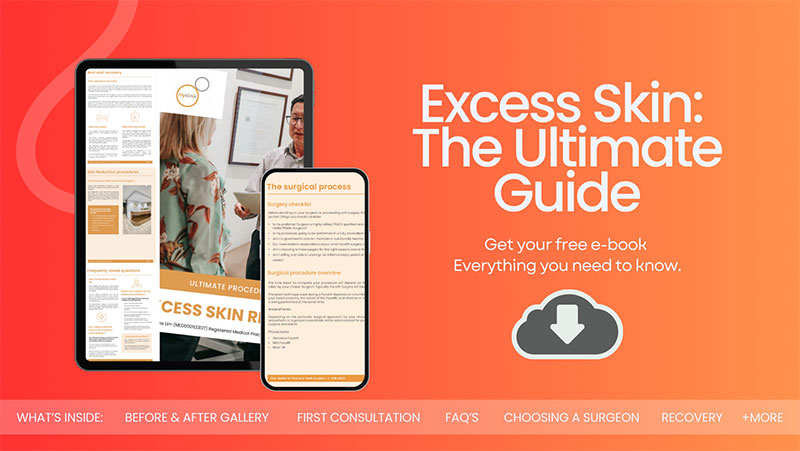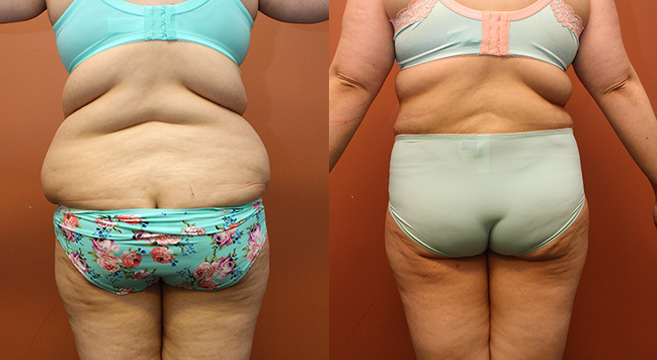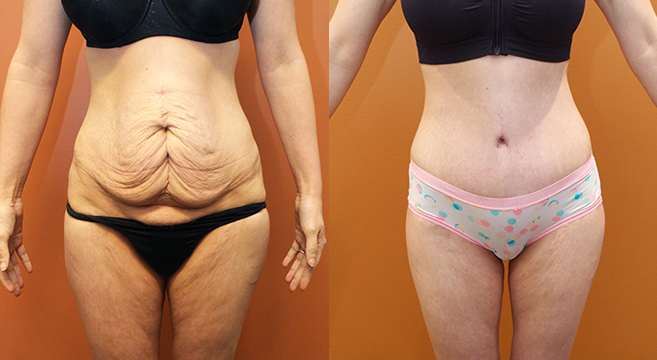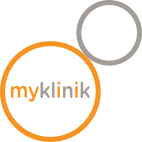Lifestyle Changes Post-Surgery to Maintain the Results of Excess Skin Removal
You had excess skin removal surgery or you are interested in this procedure. As you move forward in your journey, it’s essential to understand the importance of maintaining the results achieved. While the surgery itself is a significant milestone, it’s the lifestyle changes you make post-surgery that will ensure you maintain your new body shape.
In this blog, Sydney Specialist Plastic Surgeon Jake Lim will explore the key areas you should focus on to maintain your results post excess skin removal surgery.
Download Dr Lim’s Free 2024 Excess Skin Surgery Guide

Long-Term Lifestyle Changes
After excess skin removal surgery, it’s important to understand that maintaining your results is a lifelong commitment. While the initial changes you make in the weeks and months following your procedure are important, it’s the long-term lifestyle habits you adopt that will truly determine your success. Embracing sustainable, healthy practices will not only help you maintain your new body shape but can also improve your overall health.
Staying committed to your health and well-being after excess skin removal surgery requires a proactive approach and a strong support system. Here are some effective strategies to help you stay on track:
- Set SMART goals: Develop Specific, Measurable, Achievable, Relevant, and Time-bound goals for your health and well-being. Break down larger goals into smaller, manageable steps to help you stay focused and motivated.
- Create a routine: Establish a daily routine that prioritises healthy habits, such as regular meal times, exercise, and self-care activities. Consistency is key to making these habits a permanent part of your lifestyle.
- Find an accountability partner: Partner with a friend, family member, or support group who shares similar health goals. Check in with each other regularly to share progress, challenges, and encouragement.
- Track your progress: Keep a journal or use a mobile app to monitor your food intake, exercise, sleep, and other health metrics. Regularly reviewing your progress can help you stay motivated and identify areas for improvement.
- Plan ahead: Prepare healthy meals and snacks in advance to avoid impulsive food choices when you’re busy or stressed. Schedule your workouts like you would any other important appointment.
- Celebrate your successes: Acknowledge and reward yourself for reaching milestones and staying committed to your health goals. Choose non-food rewards that align with your interests and values, such as a new book, a day trip, or a spa treatment.
- Practice self-compassion: Be kind to yourself when faced with setbacks or challenges. Remember that progress is not always linear, and it’s okay to have off days. Focus on getting back on track without dwelling on temporary setbacks.
- Continuously educate yourself: Stay informed about the latest research and recommendations related to nutrition, exercise, and overall health. Attend workshops, read books, or consult with healthcare professionals to expand your knowledge and stay inspired.
- Prioritise stress management: Incorporate stress-reducing activities into your daily routine, such as deep breathing exercises, meditation, yoga, or spending time in nature. Managing stress can help you maintain a positive outlook and make healthier choices.
- Surround yourself with positivity: Fill your environment with positive influences, such as inspirational quotes, uplifting music, or photos of your loved ones. Limit your exposure to negative media or people who don’t support your health goals.

Nutrition to Maintain the Results after Excess Skin Removal Surgery
One of the most important aspects of maintaining your results is adopting a balanced, nutritious diet. The food you eat plays a crucial role in supporting your body’s healing process, maintaining a healthy weight, and promoting overall well-being.
Focus on consuming a variety of whole, minimally processed foods that provide essential nutrients. Aim to include lean proteins, such as chicken, fish, and legumes, which are necessary for tissue repair and muscle maintenance. Incorporate complex carbohydrates, like whole grains, fruits, and vegetables, which provide sustained energy and fibre to keep you feeling full and satisfied.
In addition to macronutrients, certain nutrients are particularly important to focus on post-surgery. Vitamin C, found in citrus fruits, berries, and leafy greens, aids in collagen production and wound healing. Zinc, found in lean meats, seafood, and nuts, supports immune function and tissue repair. Omega-3 fatty acids, found in fatty fish, chia seeds, and walnuts, help reduce inflammation and promote skin health.
To ensure you’re getting a balanced intake of these essential nutrients, it’s helpful to plan and prepare your meals in advance. Set aside time each week to grocery shop and prep ingredients, such as chopping vegetables, cooking whole grains, and portioning out lean proteins. Having healthy options readily available will make it easier to make nutritious choices when hunger strikes.
Staying hydrated is another component of post-surgery nutrition. Aim to drink at least 8-10 glasses of water per day to support your body’s healing process, maintain healthy skin, and promote feelings of fullness. If you find plain water unappealing, try infusing it with fresh fruit or herbs, such as lemon, cucumber, or mint, for a refreshing twist.
In addition to water, you can also stay hydrated by consuming water-rich foods, such as watermelon, zucchini, and soups. Herbal teas and low-fat milk can also contribute to your fluid intake while providing additional nutrients.
By prioritising a balanced, nutritious diet and staying well-hydrated, you’ll be giving your body the fuel it needs to heal and maintain your results. Remember to listen to your body’s hunger and fullness cues, and don’t be too restrictive or hard on yourself. The goal is to develop a healthy, sustainable relationship with food that supports your long-term success.
Embracing an Active Lifestyle after Excess Skin Removal Surgery
Incorporating regular physical activity into your lifestyle is just as important as maintaining a balanced diet. Exercise plays a vital role in helping you maintain your results and support your overall health.
Engaging in regular physical activity helps you maintain a healthy weight by boosting your metabolism and burning excess calories. It also helps preserve lean muscle mass, which is essential for maintaining a strong, toned physique. More than this, exercise promotes better circulation, reduces inflammation, and supports the healing process, all of which are important for your recovery and long-term success.
When starting an exercise routine post-surgery, it’s important to begin slowly and focus on safe, low-impact activities. Walking is an excellent option, as it is gentle on your joints and can be easily incorporated into your daily routine. Begin with short, 10-15 minute walks and gradually increase the duration and intensity as your strength and stamina improve.
As you feel more comfortable, you can explore other low-impact activities, such as swimming, cycling, or using an elliptical machine. These exercises provide a cardiovascular workout while minimising stress on your joints and surgical sites. Remember to listen to your body and stop if you experience pain or discomfort.
Strength training is another important component of a well-rounded exercise routine. Incorporating resistance exercises, such as bodyweight squats, wall push-ups, or resistance band movements, can help you build and maintain lean muscle mass. Begin with light weights or resistance and focus on proper form to avoid injury. Gradually increase the intensity and duration of your strength training sessions as your fitness level improves.
To stay motivated and committed to your active lifestyle, it’s essential to find physical activities that you truly enjoy. Experiment with different types of exercise, such as yoga, dance, or hiking, to discover what resonates with you. Joining a fitness class or finding a workout buddy can also help you stay accountable and make exercise a fun, social experience.

Stress Management after the Surgery
Stress can have a significant impact on your weight management efforts and overall health, making it important to develop effective strategies for managing stress and caring for your emotional needs.
When you experience stress, your body releases cortisol, a hormone that can lead to increased appetite, cravings for high-calorie foods, and the storage of excess fat, particularly around the midsection. Chronic stress can also disrupt your sleep patterns, zap your energy levels, and weaken your immune system, making it more difficult to stick to your healthy lifestyle habits.
To mitigate the negative effects of stress, it’s essential to incorporate stress-reducing techniques into your daily routine. Deep breathing exercises are a simple yet powerful way to calm your mind and body. Take a few minutes each day to sit quietly and focus on taking slow, deep breaths, allowing yourself to relax and release tension.
Meditation is another effective tool for managing stress and promoting relaxation. There are many different types of meditation, from guided visualisations to mindfulness practices, so experiment to find what works best for you. Even just a few minutes of meditation each day can help you feel more cantered, focused, and resilient in the face of stress.
Journaling is also a helpful technique for processing emotions and reducing stress. Set aside time each day to write down your thoughts, feelings, and experiences. This can help you gain clarity, identify patterns, and release pent-up emotions in a healthy way.
In addition to these techniques, it’s important to prioritise self-care and make time for activities that bring you joy and relaxation. This might include reading a book, taking a warm bath, listening to music, or pursuing a hobby you enjoy. Treat self-care as a non-negotiable part of your routine, just like eating well and exercising.
Don’t hesitate to reach out for professional support if you need it. This might include working with a therapist or counsellor to process your emotions, develop coping strategies, and address any underlying mental health concerns. Your healthcare team, including Dr Jake Lim and your GP, can also provide guidance and support as you navigate your post-surgery journey.
The Role of Quality Rest
Getting enough quality sleep is an often-overlooked but essential component of maintaining your results and supporting your overall health after excess skin removal surgery. Adequate rest plays a vital role in weight management, recovery, and overall well-being, making it important to prioritise good sleep hygiene.
When you sleep, your body undergoes important processes that support weight management and recovery. During deep sleep, your body releases growth hormone, which helps repair and regenerate tissues, including those affected by your surgery. Sleep also helps regulate hormones that control hunger and fullness, such as ghrelin and leptin. When you’re sleep-deprived, these hormones can become imbalanced, leading to increased appetite and cravings for high-calorie foods.
To support your body’s natural sleep-wake cycle and promote better sleep quality, it’s important to establish a consistent sleep schedule. Aim to go to bed and wake up at the same times each day, even on weekends. This helps regulate your body’s internal clock and makes it easier to fall asleep and wake up naturally.
Creating a sleep-friendly environment is another factor in promoting quality rest. Your bedroom should be cool, dark, and quiet, with a comfortable mattress and pillows that support your body. Consider investing in blackout curtains or a white noise machine to block out light and sound disturbances.
Before bed, establish a relaxing bedtime routine that helps you unwind and prepare for sleep. This might include taking a warm bath, reading a book, or practicing gentle stretches or yoga. Avoid stimulating activities, such as watching television or scrolling through social media, as the blue light emitted by electronic devices can interfere with your body’s natural sleep-wake cycle.
If you find yourself struggling to fall asleep or stay asleep, there are several strategies you can try to improve your sleep quality. Avoid caffeine, alcohol, and large meals close to bedtime, as these can disrupt your sleep. If your mind is racing, try practicing relaxation techniques, such as deep breathing or progressive muscle relaxation, to calm your body and mind.
FAQs about Maintaining Results after Excess Skin Removal Surgery

How long does it take to see the final results after excess skin removal surgery?
- While you may notice an immediate improvement in your body contours after surgery, it can take several months for swelling to subside and for your skin to fully adapt to its new shape. Most people see their final results within 6-12 months post-surgery, provided they maintain a stable weight and follow Dr Lim’s guidelines for recovery and maintenance.
Can I drink alcohol after excess skin removal surgery?
- It’s best to avoid alcohol for at least the first few weeks after surgery, as it can interfere with your healing process and increase the risk of complications. In the long term, it’s okay to enjoy alcohol in moderation, but keep in mind that excessive alcohol consumption can contribute to weight gain and other health problems that may impact your results.
How often should I follow up with my surgeon after excess skin removal surgery?
- Dr Jake Lim will schedule regular follow-up appointments to monitor your healing progress and address any concerns. Usually, you’ll have several appointments in the first few months after surgery, with annual check-ins recommended thereafter. However, if you experience any unusual symptoms or have questions about your recovery or maintenance, don’t hesitate to reach out to Dr Lim and his team between scheduled appointments.
Can I get pregnant after excess skin removal surgery?
- While it’s possible to get pregnant after excess skin removal surgery, it’s generally recommended to wait at least 6-12 months to allow your body time to heal and adapt to its new shape. Pregnancy can significantly alter your body contours and may impact your surgery results, so it’s important to discuss your family planning goals with Dr Lim before undergoing the procedure.
Will I need additional surgeries to maintain my results after excess skin removal?
- In most cases, excess skin removal surgery provides long-lasting results that can be maintained with a healthy lifestyle. However, significant weight fluctuations, pregnancy, and the natural ageing process can all impact your skin’s elasticity and body contours over time. Some people may choose to undergo additional procedures, such as touch-up surgeries or non-invasive treatments, to refine their results, but this is not typically necessary for most patients who maintain a stable weight.
Further Reading about Excess Skin Removal Surgery with Dr Jake Lim
- Read more about Risks and Benefits of Post-Weight Loss Surgery
- Read more about Weight Loss Resources
- Read more about 5 Plastic Surgeries to Consider after Massive Weight Loss
- Read more about Will Medicare Cover Skin Removal after Weight Loss?
- Read more about Recovery after Excess Skin Removal Procedures after Massive Weight Loss
- Read more about Exercise after Surgery after Massive Weight Loss
- Read more about Nutrition during Recovery after Excess Skin Removal Surgery
- Read more about Types of Excess Skin Removal Surgeries
Medical References Excess Skin Removal Surgery
- Body Contouring Following Massive Weight Loss – PMC
- Plastic surgery after bariatric surgery – PubMed
- Complications following body contouring surgery after massive weight loss – PubMed
- Health-related quality of life in patients having undergone abdominoplasty after massive weight loss – Science Direct
- Weight loss is higher among patients who undergo body contouring procedures after bariatric surgery – Science Direct




